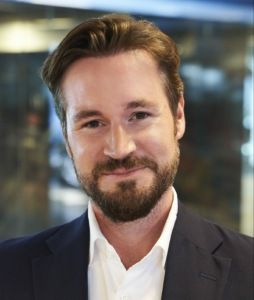Opinion
A Globally Local Denmark
Thomas Knudsen Mulhern
This article is more than 4 years old.
The journey of Thomas Knudsen Mulhern, his company Globally Local and Lolland International School

(photo: Pixabay)
The education sector in Denmark has changed with the establishment of Lolland International School in Maribo, which has this month become the first municipal international school in Denmark ever!
To mark this significant development, HKH Crown Princess Mary officially opened the new school on August 24!
Its opening has greatly expanded the international school choice for international and Danish families.
Lolland International school not only offers a free, internationally certified program, but is also the third school in Denmark to offer a fully bilingual (Danish/English) program to its families.
21st century Odyssey
The fulfillment of a key strategic goal of my organisation Globally Local has helped me to reflect upon my own personal and professional journey towards creating a more globally local Denmark.
I was born and raised in the United States, met my future Danish wife in graduate school, moved to Denmark in 2011 and became a Danish citizen on Constitution Day (grundlovsdag) in 2020. My story may sound very familiar for many expatriates who find themselves in the home country of the one they love.
I arrived in Denmark not speaking a word of Danish, with a limited understanding of the culture and almost no network. In addition, I was acutely aware of shifting from a purely expatriate context to moving to the home country of my fiancé. This challenged my self-understanding and made me wonder whether I would segregate into the expat bubble, assimilate or perhaps integrate into Danish society.
Bursting the bubble
For me the goal was never to assimilate or, as I used to think, ‘become locally Danish’ in the way that I thought about it then.
My goal was to authentically integrate into Danish society: to learn and grow, contribute, challenge the status-quo and ultimately make Denmark a more dynamic and inclusive place to live and work. This goal was and still is rooted in my firm belief that Danes and foreigners can inspire each other in order to help Denmark become an even greater society.
For me, authentically integrating meant that I maintained my self-understanding as a global citizen, while still actively engaged in the local community. I found out quickly that this approach would require that I step outside of my comfort zone and face the fears of exclusion, uncertainty and sounding like a two-year-old speaking Danish!
Persevere and prosper
I knew that standing in the grey space between the expat bubble and full assimilation required vulnerability. I needed to persevere to emerge from the inclusion safety of the expat bubble and dare to learn a new language/culture, contribute as a full member of society and have the courage to challenge the status-quo.
My personal effort would not have been enough to integrate if not for the wonderful Danes I have had the privilege of knowing, working with and calling friends, who themselves have been vulnerable enough to include me, and have given me the social permission to learn, contribute, challenge, fail and succeed.
On my journey I was given the gift of learning the Danish language and an invitation to understand and contribute to Danish values that make the culture so great.
The capital of trust
When foreigners read about Denmark, it is often said that Denmark is the happiest country in the world, but this is merely a slogan. What Denmark came to embody for me was centered upon trust.
In my opinion, trust is the capital of Denmark and Denmark is the world capital for trust. It’s both trust between people and a trust in institutions. This incredible asset is more than just the peace of mind felt when leaving a stroller unattended outside, it is the mentality that guides daily interactions. I love the trust level of Denmark and how it underpins the social welfare model.
I love the democratic values, the emphasis on gender equality, freedom, hygge and equal justice for all. This is the Danish canon that I have come to learn and support.
Inspirational, inclusive, innovative
As a former international department head in Copenhagen, I worked to create the first fully Danish/English bilingual school program in Denmark. Danes and foreigners alike were able to move outside their comfort zones and break down the barriers of segregation and assimilation.
We were able to succeed in creating a hybrid culture where authentic integration was possible for expat and ‘Global Danish’ families, and where authentic internationalisation was possible for Danes seeking a more global approach.
These core principles underpin the purpose of my company Globally Local, and the Global Denmark Podcast, which I host. It always comes back to Danes and foreigners inspiring each other in order to create a more inclusive and innovative society.
So much potential
The education sector plays a central role in the mission of my company. An expanded choice for international and Danish families is not only a nice thing to have, but more and more a reflection of the increasing demand for international educational programs in Denmark.
With the need for attracting and retaining global talent as important as ever, and with more and more Danish/multi-ethnic families seeing the value of internationalisation in education, the need is real. So while Lolland International School may be the first international municipal school, it certainly will not be the last.
A new market and new potential for Danish and international stakeholders have been created. For the first time in Denmark’s history, it is now possible for local municipalities to establish a free public international school option for its international and Danish residents. Thus, the opportunity to achieve local growth strategies has received a major boost nationally.
Values maketh the Dane
I used to think that for one to be Danish, one needed to be native born, have generations of family from Denmark, speak flawless Danish and have an understanding of every cultural practice down to a tee.
My time in this great country has taught me that I was mistaken, as it is truly the values that one fights for that make one Danish. I believe these values are universal. Every human being can learn and promote them, whether one is born in Jutland or Philadelphia.
I know that I will always be Danish-American. This duality, both in terms of citizenship, but also in terms of self-understanding is a by-product of my story. I believe that being Danish is both communal in terms of shared values, but unique to the individual story.
I hope that my journey can help inspire Danes and foreigners in Denmark to become more vulnerable and dare to inspire each other. I believe that if we do, together we can create a more inclusive, innovative and prosperous nation for generations to come. A globally local Denmark if you will!

About
Thomas Knudsen Mulhern
Thomas Knudsen Mulhern is administrative director at Globally Local, a private organisation that provides integration and internationalisation solutions to companies, municipalities and schools. Thomas is the former International Department head at Institut Sankt Joseph in Copenhagen










































